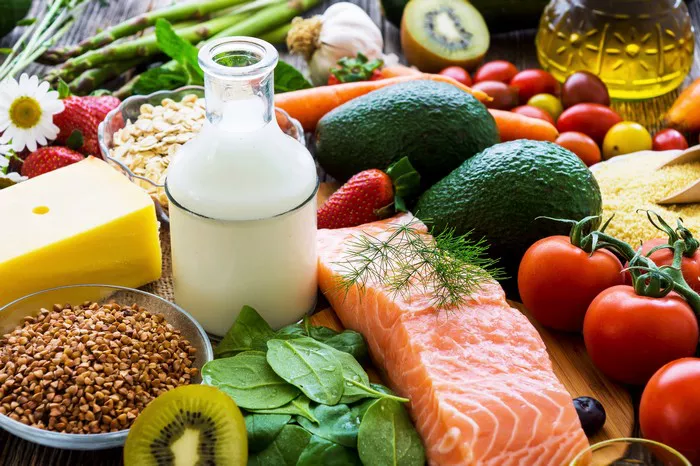The Mediterranean diet has long been lauded for its numerous health benefits, associated with reduced risks of heart disease, diabetes, certain cancers, and promoting overall longevity. While much attention is often given to its lunch and dinner components, the Mediterranean breakfast is equally significant and sets a wholesome tone for the day. It’s a harmonious combination of fresh fruits, whole grains, healthy fats, and lean proteins that not only satisfies the palate but also provides the body with essential nutrients to kick-start the day on a healthy note. In this extensive essay, we’ll explore in-depth what exactly constitutes a healthy Mediterranean breakfast, from its key components and their nutritional value, to various traditional and modern interpretations, how it can be customized to fit different dietary needs and preferences, and the scientific basis behind why it’s so beneficial for our health.
Key Components of a Healthy Mediterranean Breakfast
Abundance and Variety: Fruits are a cornerstone of the Mediterranean breakfast. The region’s climate allows for a wide array of fresh, seasonal fruits to be readily available. Citrus fruits like oranges, lemons, and grapefruits are common. Oranges, for example, are rich in vitamin C, providing about 70 milligrams per medium-sized fruit. This vitamin is crucial for the immune system, acts as an antioxidant to protect cells from damage, and helps in the production of collagen for healthy skin. Grapefruits are also known for their potential to aid in weight management due to their fiber content and ability to increase feelings of fullness.
Berries: Berries such as strawberries, blueberries, and raspberries are another staple. They are packed with antioxidants, including anthocyanins, which have been shown to have anti-inflammatory properties and may help protect against chronic diseases like heart disease and certain cancers. A cup of strawberries contains about 49 milligrams of vitamin C along with dietary fiber and other beneficial compounds. Blueberries are rich in polyphenols that can support brain health and improve cognitive function.
Figs and Dates: Figs and dates are fruits that have been part of the Mediterranean diet for centuries. Figs are a good source of fiber, with about 2.9 grams per medium-sized fig. They also contain potassium, which is important for maintaining proper muscle function and regulating blood pressure. Dates are naturally sweet and provide a quick energy boost. They are rich in fiber as well, with around 7 grams per 100 grams, and contain minerals like magnesium, which plays a role in muscle relaxation and nerve function.
Incorporation into Meals: Fruits can be eaten fresh as a simple snack or added to other breakfast items. For example, sliced oranges or berries can be added to a bowl of yogurt, or figs can be spread on whole wheat toast. They can also be blended into smoothies, along with other ingredients like nuts and plant-based milk, to create a delicious and nutritious start to the day.
Whole Grains
Types of Whole Grains: Whole grains are a vital part of the Mediterranean breakfast, providing complex carbohydrates for sustained energy throughout the morning. Common whole grains include whole wheat, which is used to make bread, muffins, and cereals. A slice of whole wheat bread typically contains around 12 grams of carbohydrates and 2 grams of fiber. Oats are another favorite, with a half-cup of dry oats having about 27 grams of carbohydrates and 4 grams of fiber. Barley, often used in porridges or added to baked goods, is rich in beta-glucans, a type of soluble fiber that can help lower cholesterol levels.
Benefits of Whole Grains: The fiber in whole grains aids in digestion, promotes regular bowel movements, and helps maintain a healthy gut microbiota. It also slows down the digestion of carbohydrates, preventing rapid spikes in blood sugar levels. Additionally, whole grains are a source of essential vitamins and minerals such as B vitamins (thiamine, riboflavin, and niacin), which are involved in energy production in the body, and minerals like magnesium and iron.
Preparation and Consumption: Whole grains can be prepared in various ways. Oats can be cooked into a warm porridge with a sprinkle of cinnamon and a drizzle of honey for added flavor. Whole wheat bread can be toasted and topped with nut butters or spreads made from fruits. Barley can be cooked with a bit of fruit and nuts to make a hearty breakfast bowl.
Healthy Fats
Olive Oil: Olive oil is perhaps the most iconic source of healthy fats in the Mediterranean diet. It’s rich in monounsaturated fats, particularly oleic acid, which has been shown to have numerous health benefits. Using olive oil in cooking or as a dressing for breakfast items can help improve heart health by reducing levels of low-density lipoprotein (LDL, or “bad” cholesterol) and increasing levels of high-density lipoprotein (HDL, or “good” cholesterol). For example, drizzling a teaspoon of olive oil over a bowl of whole wheat cereal with berries can add a healthy dose of fats and enhance the flavor.
Nuts and Seeds: Nuts like almonds, walnuts, and pistachios, as well as seeds such as chia seeds and flaxseeds, are rich in healthy fats, protein, and fiber. Almonds, for instance, have about 14 grams of fat per ounce, with most of it being healthy monounsaturated and polyunsaturated fats. They also contain around 6 grams of protein and 3.5 grams of fiber. Walnuts are a great source of omega-3 fatty acids, which are essential for brain health and reducing inflammation. Nuts and seeds can be eaten on their own as a snack, added to yogurt or oatmeal, or used in baking to add texture and nutrition.
Avocado: Avocado has become increasingly popular in Mediterranean-inspired breakfasts. Half an avocado contains around 10 grams of healthy fats, mainly monounsaturated fats. It can be mashed and spread on whole wheat toast, added to a breakfast bowl with eggs and vegetables, or included in a smoothie for a creamy texture and added nutrition.
Lean Proteins
Eggs: Eggs are a common and versatile source of protein in the Mediterranean breakfast. A large egg contains about 6 grams of protein. They can be prepared in various ways, from scrambled to poached or made into an omelet. For example, an omelet filled with spinach, tomatoes, and a sprinkle of feta cheese (a traditional Mediterranean ingredient) provides not only protein but also vitamins and minerals from the vegetables and a bit of calcium and flavor from the cheese.
Greek Yogurt: Greek yogurt is a staple due to its high protein content. A 6-ounce container of Greek yogurt can have around 15 to 20 grams of protein. It’s often enjoyed plain or with a drizzle of honey and some fruit. The probiotics in Greek yogurt are beneficial for gut health, helping to maintain a healthy balance of gut bacteria and improving digestion.
Lean Meats (Occasionally): While the Mediterranean diet emphasizes plant-based foods, lean meats like grilled chicken or turkey can be included on occasion. A 3-ounce serving of skinless chicken breast can provide around 26 grams of protein. These can be added to a breakfast wrap with whole wheat tortillas, vegetables, and a light dressing for a more substantial meal.
Conclusion
In conclusion, a healthy Mediterranean breakfast is a delightful and nutritious way to start the day. By embracing the rich culinary traditions of this region, individuals can enjoy a meal that is both flavorful and beneficial for their health. A typical Mediterranean breakfast includes whole grains like whole-wheat bread or cereal, fresh fruits, and dairy products such as yogurt or cheese, often accompanied by a beverage like olive oil-infused coffee or a glass of herbal tea. This dietary pattern is rich in essential nutrients, antioxidants, and healthy fats, which can support heart health, boost energy levels, and enhance overall well-being. By incorporating these ingredients into your morning meal, you can enjoy a breakfast that is not only satisfying but also aligns with the healthy principles of the Mediterranean diet. Remember, variety, moderation, and enjoying food mindfully are key to making every meal a delightful and nutritious experience.
Related Topics:






















